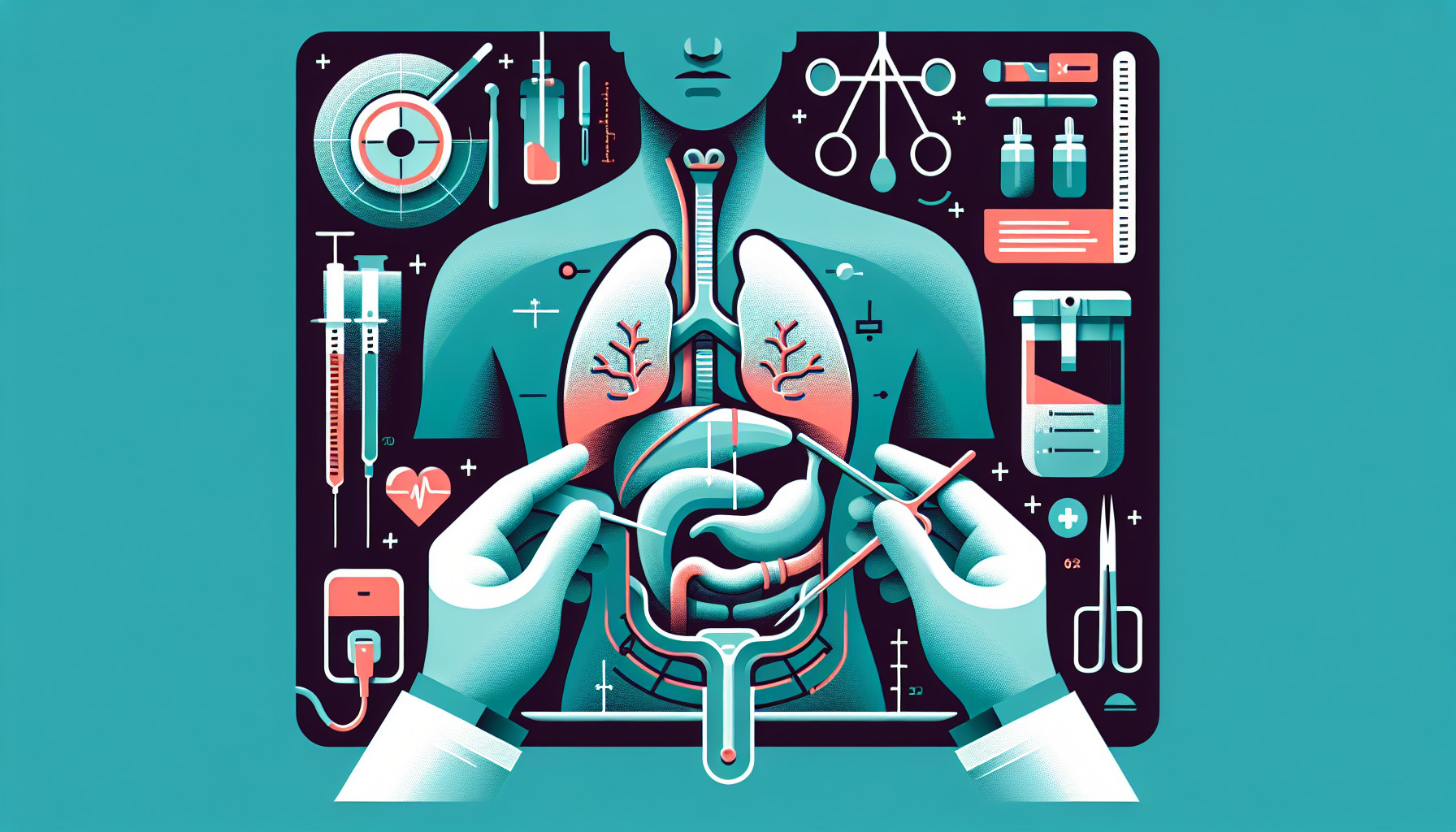Our Summary
This research paper compared the effectiveness and cost of pancreas transplants to standard treatments for type 1 diabetes patients over a decade, from 2008 to 2018, in the United States. The researchers did not find any notable difference in survival rates between people who had pancreas transplants and those who did not. Yet, they found that pancreas transplants were less expensive and resulted in better quality of life. So, even though pancreas transplants didn’t necessarily help people live longer, they were more cost-effective and improved the patients’ quality of life. The researchers came to this conclusion after running simulations to test the cost-effectiveness, taking into account people’s willingness to pay for better quality of life.
FAQs
- What was the duration of the study comparing the effectiveness and cost of pancreas transplants to standard treatments for type 1 diabetes patients?
- Did the study find any difference in survival rates between patients who had pancreas transplants and those who didn’t?
- According to the research, how did pancreas transplants affect the quality of life and cost for type 1 diabetes patients?
Doctor’s Tip
One helpful tip a doctor might tell a patient about pancreas transplant is that while it may not necessarily increase survival rates, it can significantly improve quality of life and be a cost-effective option for managing type 1 diabetes. It is important for patients to weigh the potential benefits and risks of a pancreas transplant and discuss with their healthcare team to determine if it is the right treatment option for them.
Suitable For
Patients who are typically recommended for a pancreas transplant are those with type 1 diabetes who have difficulty controlling their blood sugar levels despite optimal medical management, leading to severe complications such as kidney failure, nerve damage, or vision problems. These patients may also have hypoglycemia unawareness, frequent episodes of severe low blood sugar that can be life-threatening. Additionally, candidates for pancreas transplant are usually relatively young and otherwise healthy individuals who are motivated to undergo the transplant procedure and adhere to the necessary post-transplant medications and lifestyle changes.
Timeline
Before pancreas transplant:
- Patient is diagnosed with type 1 diabetes and struggles to manage blood sugar levels with insulin therapy
- Patient experiences complications of diabetes such as kidney disease, nerve damage, and vision problems
- Patient is evaluated by a healthcare team for eligibility for pancreas transplant, including physical and psychological assessments
- Patient is placed on a waiting list for a suitable donor pancreas
- Patient undergoes pre-transplant preparation, including education on post-transplant care and lifestyle changes
After pancreas transplant:
- Patient undergoes surgery to receive the donor pancreas
- Patient stays in the hospital for monitoring and recovery
- Patient takes immunosuppressant medications to prevent rejection of the donor pancreas
- Patient undergoes regular follow-up appointments and monitoring to ensure the success of the transplant
- Patient experiences improved blood sugar control and reduction in diabetes-related complications
- Patient enjoys a better quality of life with reduced dependence on insulin therapy and improved overall health
Overall, pancreas transplant can significantly improve the quality of life for type 1 diabetes patients, allowing them to better manage their condition and reduce the risk of complications associated with diabetes.
What to Ask Your Doctor
What are the benefits of a pancreas transplant compared to other treatments for type 1 diabetes?
What is the success rate of pancreas transplants in terms of improving insulin production and blood sugar control?
What are the potential risks and complications associated with a pancreas transplant?
How long is the recovery process after a pancreas transplant and what is the expected recovery time?
What is the long-term outlook for someone who has had a pancreas transplant?
How will a pancreas transplant impact my daily life, including diet, exercise, and medication management?
Are there any lifestyle changes or precautions I need to take after a pancreas transplant?
How often will I need to follow up with my healthcare provider after a pancreas transplant?
What is the cost of a pancreas transplant and are there any financial assistance or insurance coverage options available?
Are there any clinical trials or research studies related to pancreas transplants that I may be eligible for?
Reference
Authors: Jarmi T, Thao V, Borah BJ, Brennan E, Moriarty JP, Spaulding AC. Journal: Pancreas. 2022 May 1;51(5):483-489. doi: 10.1097/MPA.0000000000002053. Epub 2022 Jul 16. PMID: 35835120
